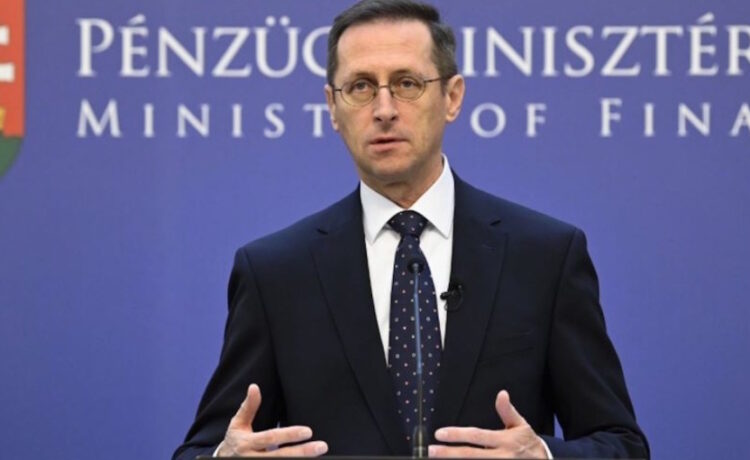The government will postpone HUF675bn (€1.73bn) of state investments to meet the deficit target and the 2025 budget will only be submitted to parliament in the autumn, Finance Minister Mihaly Varga announced at the government press briefing on April 12.
Due to the war and unfavourable economic environment, EU economies, including Germany are recovering from the crisis at a slower pace than expected, Varga said, as usual blaming other countries for Hungary’s self-inflicted economic woes.
The government reduced its growth target to 2.5% in 2024 compared to the 4% target in the budget bill. According to Varga, growth is expected to accelerate in the second half and reach 4.1% in 2025. The minister also confirmed that the 2024 deficit target will be amended from 2.9% to 4.5%.
The decision to postpone investments will only address part of the problem, according to analysts, who calculate that some HUF1.0-1.1 trillion fiscal consolidation would be required to keep to the revised target.
It is a positive that the cabinet recognises the need to intervene in the budget but the proposed measures fall short of tackling structural issues and only provide a temporary solution, analysts said.
It appears that the government is carefully avoiding measures directly affecting households, sidestepping politically sensitive issues, such as raising taxes ahead of the June elections.
The government is trying to buy time in the hope that the external economic environment improves, giving a boost to exports, while rising real wages will lift consumption and lead to higher VAT revenues.
There is little sign of a swift recovery of domestic demand despite steep disinflation as households remained cautious. Retail sales rose just 1.1% year on year when adjusted for calendar year effects despite massive coupon payments during the month, which shows that Hungarian consumers remained cautious.
The head of the Prime Minister’s Office, Gergely Gulyás, announced the cabinet will submit the 2025 budget bill to parliament after the US election in November. In the past few years, the budget for the upcoming year was passed on the last session before the summer break.

















